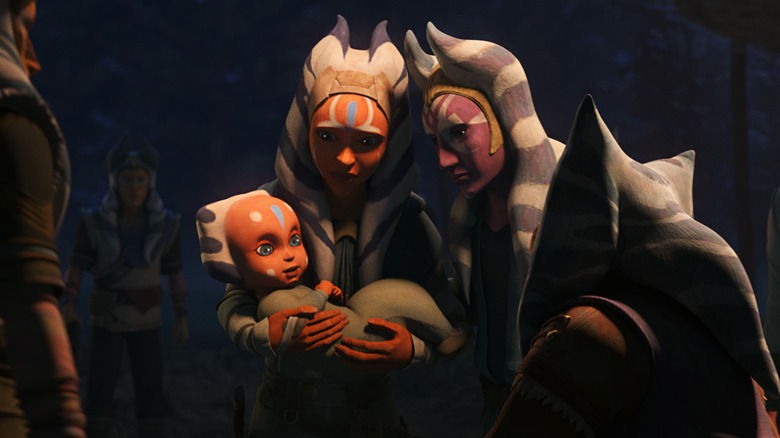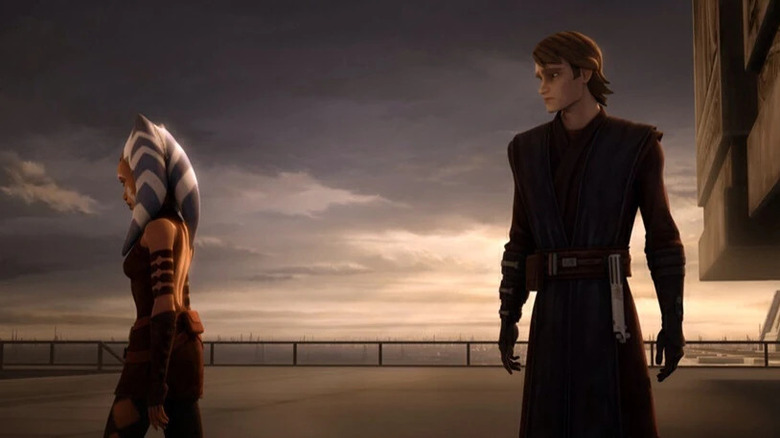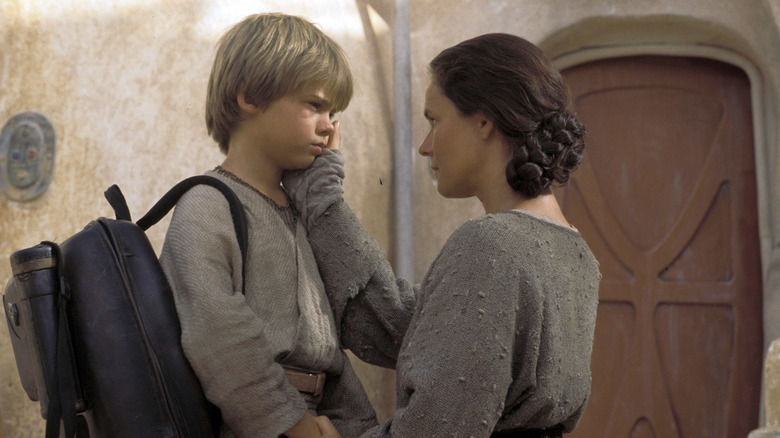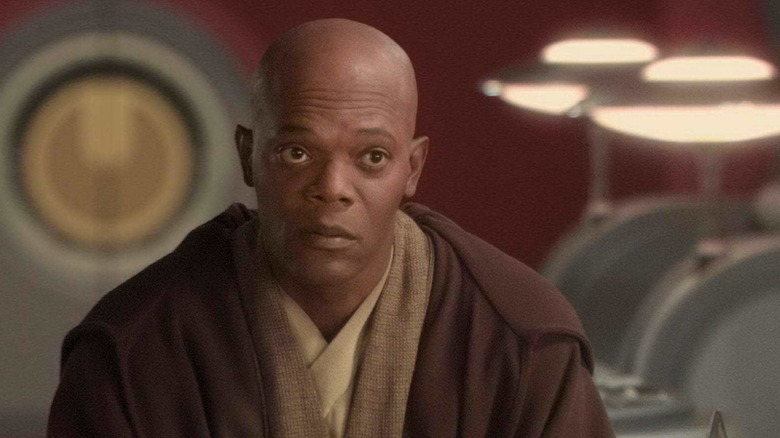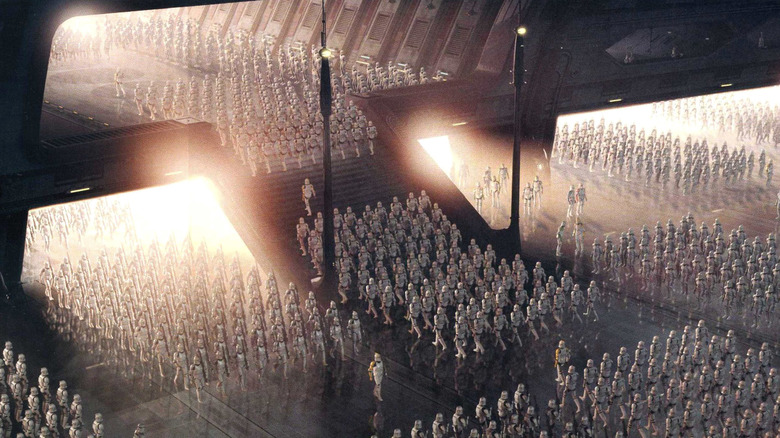Cookies help us deliver our Services. By using our Services, you agree to our use of cookies. Learn More.
Star Wars: The 5 Worst Things The Jedi Have Ever Done
In most Star Wars stories, the Jedi are the heroes. They’re the champions of light, life, and justice in the galaxy — or so they say. In truth, the Jedi Order is far more complicated. It’s a group that generally stands up to evil and fights for what’s right, but as with any institution, it also makes a lot of mistakes. Sometimes, the Jedi do downright terrible things, though they often get swept under the rug.
We could spend all day talking about the religious dogma of the prequel-era Jedi — how they forbid all emotional attachments, often for the worse, and force members into isolated lives where relationships with other people are frequently seen as dangerous. We could talk about how despite these rigid rules, they rarely act when their members truly step out of line. Count Dooku was able to walk away from the Order scot-free with his lightsaber at his hip. In the canonical novel “Star Wars: Dark Disciple,” Jedi Knight Quinlan Vos is welcomed back with open arms after briefly falling to the dark side and committing heinous crimes as Admiral Enigma.
For the sake of time, though, we’re going to focus less on the passive paradoxes of the Jedi and more on the specific deeds they’ve done that cause major harm. We’re also going to stay generally focused on the modern Star Wars canon, though a number of these dark deeds overlap with the Legends timeline. These are some of the worst things the Jedi have ever done.
Kidnapping children
Let’s start with the big one: the problematic at best, downright evil at worst way that the Jedi recruit new members. As seen repeatedly, be it on Ahsoka Tano’s “Tales of the Jedi” episodes or in the various comics and Star Wars books set before the prequels, Force-sensitive children are identified at early ages and, in most cases, brought to the Temple on Coruscant before they even form memories of their original homes. On “Obi-Wan Kenobi,” Obi-Wan tells a young Princess Leia that he thinks he had a brother, but he was taken by the Jedi so young that he doesn’t actually concretely remember anything about his family.
The taking of children is generally shown as a service, not something that families are forced into. Even still, it’s hard not to see this tradition for what it is — kidnapping. While the parents might have some say (at times) as to whether or not their child should go with the Jedi to be trained, the kids themselves almost never do. The choice is made for them one way or another. By the time they’re old enough to decide whether or not they truly want the life of a Jedi, they’re already so deep in the system and so removed from their history that it’s very difficult to leave.
Were the Jedi less ubiquitous in the galaxy, more families might resist. But when the whole idea of the Force is dominated by a single church, what are you to do if your baby starts moving things with its mind? You give it to the Jedi who come calling. They’ll know what to do, right? No matter that you’ll never see your child again.
Kicking Ahsoka out of the Order
This is a pretty specific one, and it might seem relatively mild in the grand scheme of Jedi history, but it’s emblematic of a larger issue within the Order. At this point, Ahsoka’s ejection from the Jedi at the end of “Star Wars: The Clone Wars” Season 5 is one of the franchise’s most iconic moments. She leaves of her own accord, of course, but after the Jedi Council strips away her faith in their leadership completely.
For those who need a refresher, Anakin and Ahsoka are called back to Coruscant near the end of the Clone Wars to investigate a bombing at the Jedi Temple. Ahsoka is framed, and despite her illustrious history, the Council stands by idly as the Senate and Republic military arrest her. When a young Wilhuff Tarkin requests that they expel her from the Order so that she can be tried in court as a civilian, the Council acquiesces. By the time Anakin proves Ahsoka’s innocence and the Council offers her re-admittance to the order, it’s already too late. She’s seen what the Jedi really are — a shell of the protectors they claim to be who blindly serve a corrupt state.
Ahsoka’s expulsion is indicative of larger institutional problems: the unwillingness to stand up to the growing fascist power structure within the Republic, and a lack of faith in the Council’s own dependents. Ahsoka is still a kid when she’s framed for the bombing, but that doesn’t stop Yoda from rolling over silently so that Tarkin can do his work.
Ignoring slavery in the galaxy
One of the most infamous parts of the Star Wars saga is when Qui-Gon Jinn tells Shmi Skywalker that despite his apparent duty as a Jedi, he didn’t come to Tatooine to free slaves. While he’s able to mind-trick Watto into giving up Anakin, he leaves the boy’s mother behind. We could talk endlessly about his attempts to free her, or about how any unauthorized attempt might have resulted in her hidden slave bomb killing her, but the point remains the same — slavery, while morally reprehensible, isn’t a Jedi concern when it falls outside Republic jurisdiction.
The evils that persist in the Outer Rim are clear. And yet, by the time of the prequel trilogy, the Jedi seem content to let them fester. Government jurisdiction only matters if you’re a tool of the Senate, which the Jedi repeatedly deny being. And yet, when push comes to shove, the moral purpose they claim to serve absolutely is trumped by their loyalty to a corrupt bureaucracy.
What’s more important to the Jedi than freeing slaves? According to “Tales of the Jedi,” tracking down the kidnapped children of corrupt senators who’ve failed their people and thrust them into poverty. That’s exactly the mission that Count Dooku and Qui-Gon, his apprentice at the time, are sent on during the animated series. Staying to help secure a better future for the citizens? Not in the playbook. The Jedi are ordered to leave as soon as the hostage is recovered, much to Dooku’s chagrin.
Abusing their power
Yes, “abuse of power” is an awfully big box, but it’s important that we talk about the many repeated crimes of the Jedi in addition to their big dramatic mistakes. For one, using Jedi mind tricks on civilians can be seen as a horrific abuse of power in any scenario. It’s a massive invasion of privacy that borders on erasure of freedom, but since it’s not “violent,” the Jedi rely on this tool constantly in their investigations. Who gets to determine where and when is too far to control a mind? The Jedi, of course. Self-policing always works, after all.
It’s not just mind control, either. In “Star Wars: The Clone Wars” Season 2, we see that the Jedi are more than willing to resort to outright torture if they think the situation demands it. When the bounty hunter Cad Bane is caught while withholding secrets about a plan to abduct Force-sensitive children, the Jedi use a group technique that seems to nearly break his mind. They don’t extract the information this way, but they cause him enough pain that he tells them what they want to know. While you could argue that Bane had it coming to him, this kind of behavior goes completely against the principles that the Jedi claim to stand for.
Starting the Clone Wars
Perhaps the most egregious mistake the Jedi have ever made is the one that ultimately led to their downfall — starting the Clone Wars. Yes, it is Darth Sidious who manipulates a failing democracy to the brink of civil war. Yes, it is he who organizes the clone army, who puts Count Dooku in place as the charismatic leader of the Separatists, and uses emergency powers from the Senate to put the army into action. But all told, he merely set the stage to do what the Jedi were already prepared to do — abandon their role as peacekeepers and become full-blown soldiers serving the Republic.
“The Clone Wars” repeatedly illustrates that many within the Confederacy of Independent Systems oppose Republic rule for just reasons. Many planets suffer in the final years before the Empire due to gross negligence, financial mismanagement, or other forms of corruption. Was Dooku serving the dark side all along? Yes, but he would have had little power without the support of countless systems that wanted true independence. The Republic couldn’t stand to see that happen, so the Jedi couldn’t either.
Yoda and Mace Windu are the ones who lead the assault on Geonosis — an assault meant to rescue Anakin, Obi-Wan, and Padmé, all of whom, in fairness, are captured while infiltrating and attacking a Separatist facility. The Jedi then double down by turning their Padawans — the youngest and most vulnerable amongst them — into child soldiers, all while commanding an army of sentient beings bred to be essentially a slave army. The many Jedi deaths during Order 66 remain tragic, but it’s hard not to think that the Jedi could have avoided it had they not so quickly leapt to violence.



